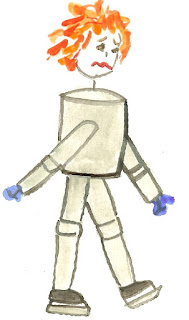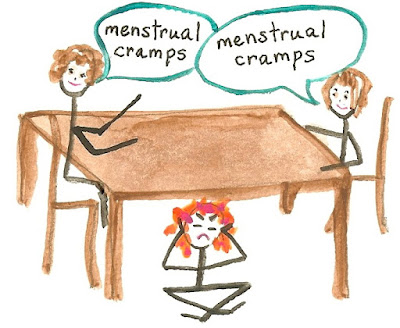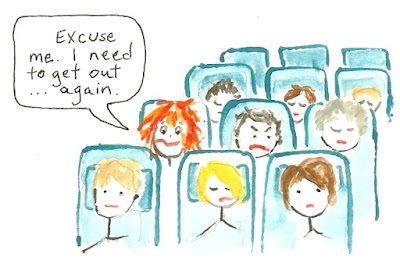The people chairs were loved to death, but reupholstering was a very expensive proposition: all those angles and odd shapes. After a while, the library gave up, and the chairs have been sitting in the basement ever since.
But now there are guerrilla knitters! And this great idea: have the knitters cover the chairs; put the chairs up for auction at the library’s annual spring fundraiser, Beyond the Stacks; and have the funds support library programs. Win/wins all around!
What I love about our guerrilla knitting and yarn bombing is that it is participatory art. Most art is stand-and-look-at art and people only experience it as spectators. But with the knitting and the attaching, we are all part of making public art. Experiencing this, making it happen, was the first Cosmic Light Bulb of my Third Third: there was something new and fun and rewarding I could offer my community.
So now to the chairs – a chance for indoor yarn bombing! At first, I was thinking maybe everyone could make 4-inch squares and then we’d just attach them to the chairs, like a crazy quilt.
So maybe the best way to do it is to have someone with an idea “adopt” a chair and make a plan for the rest of us to do the creating. Maybe someone could say, “Everyone, I need yellow and red 2-inch by 6-inch pieces, 4-inch squares of orange.” Maybe someone else could say, “Quilters, I want you in on the action: I need X and Y.” Maybe you? Find us on Facebook if you can help and want to look over the chairs in person.
And then we could have assembly days at the library where we come together to attach, chair by chair.
There are some things to be done first. I’m looking for an upholsterer who could add the padding over the fiberglass frames. I’m checking around with fiber people to see what makes sense. (Remember me? I’m the guerrilla knitter who doesn’t even know how to purl….)
Lesson in my Third Third: I don’t know how to purl, but I do know how to make things happen. Over the years, I have acquired the skills of public relations, volunteer coordination, project management, effective communication. Most importantly, I know where to find the expertise I lack. Isn’t this what we’d want by the time we reach our Third Thirds? That we’ve learned something?
So I am saying this out loud for every other Third Thirder out there, despite feeling horribly uncomfortable about having such ego come out of my own mouth. We have learned things! So now we use those skills outside the workplace. Good for us (and maybe we can take a short respite from self-doubt).
Right now, I’m heavy into “figure it out” mode, a state I like to occupy. (Keeps me from stewing over other things, like where did I put the camera with the pictures of the people chairs I’d taken?)
















































